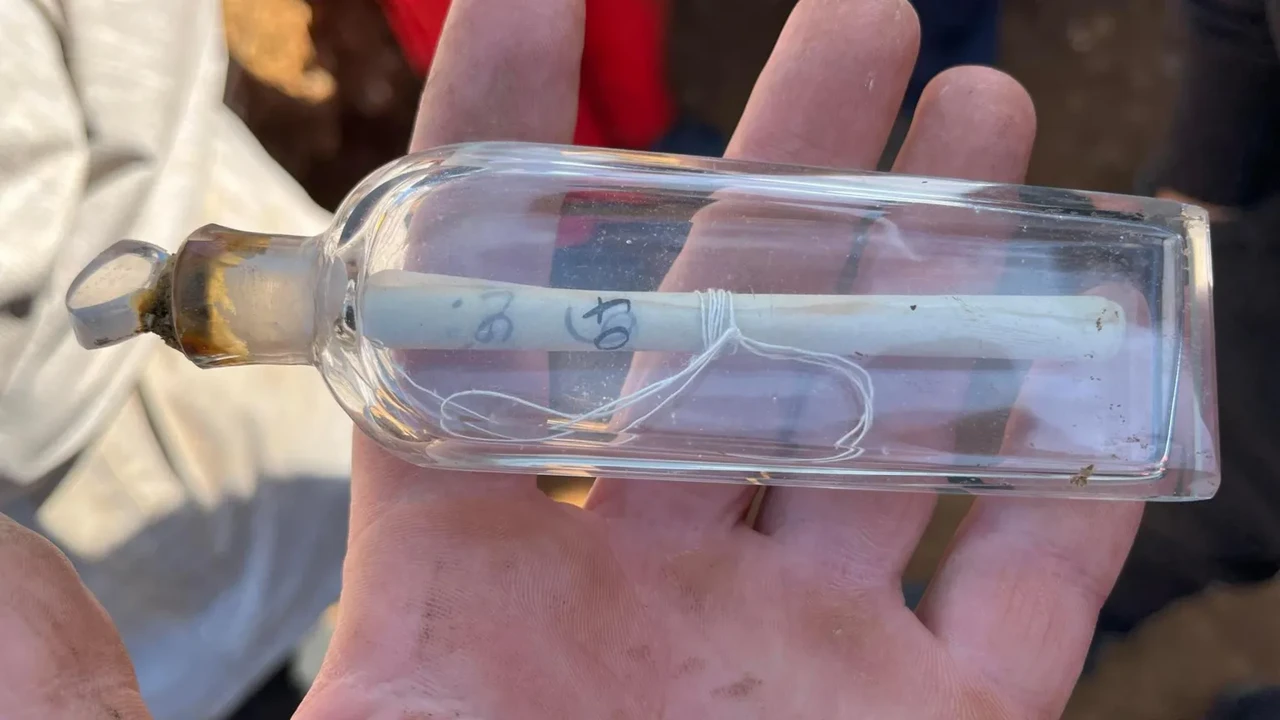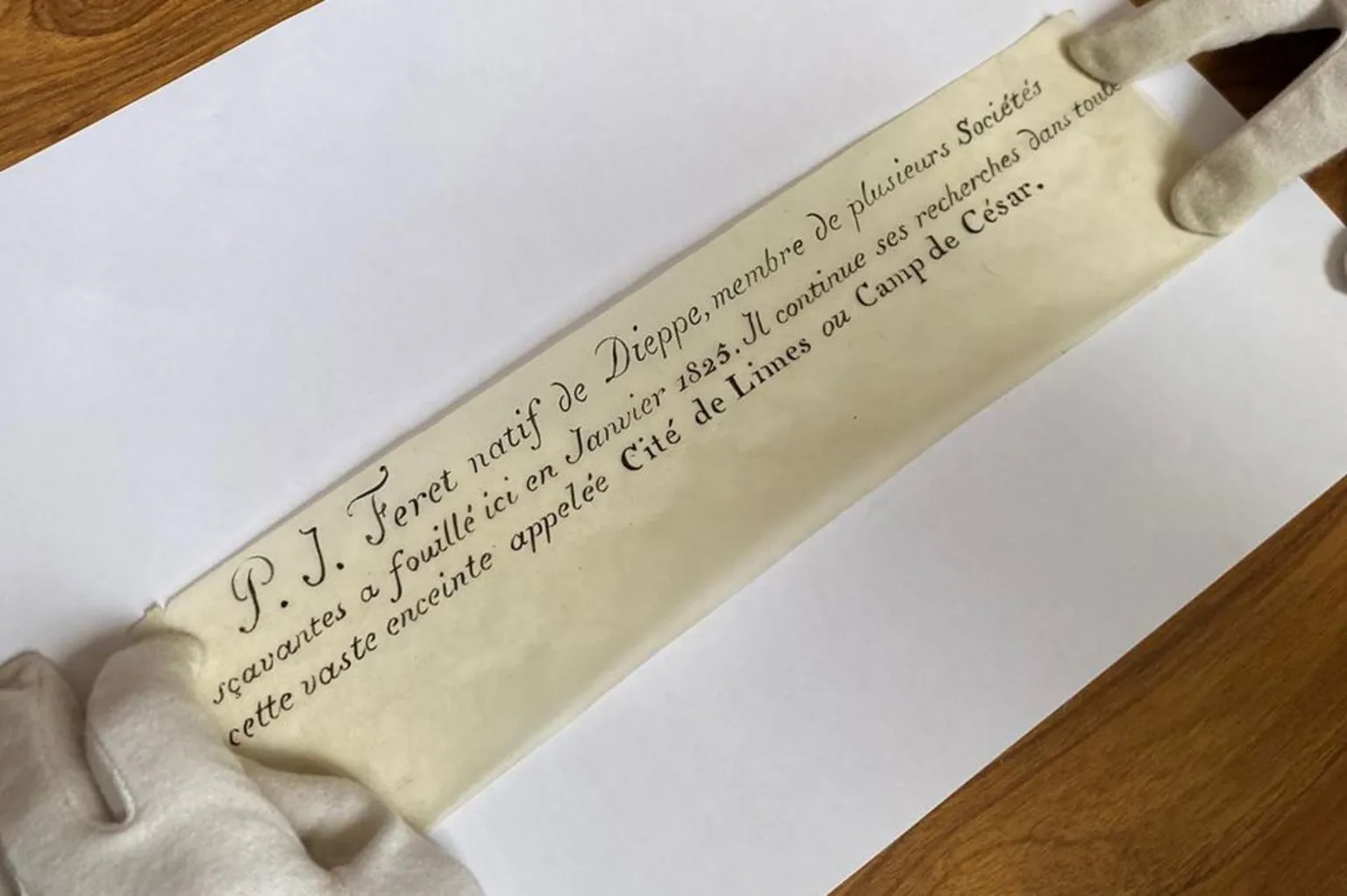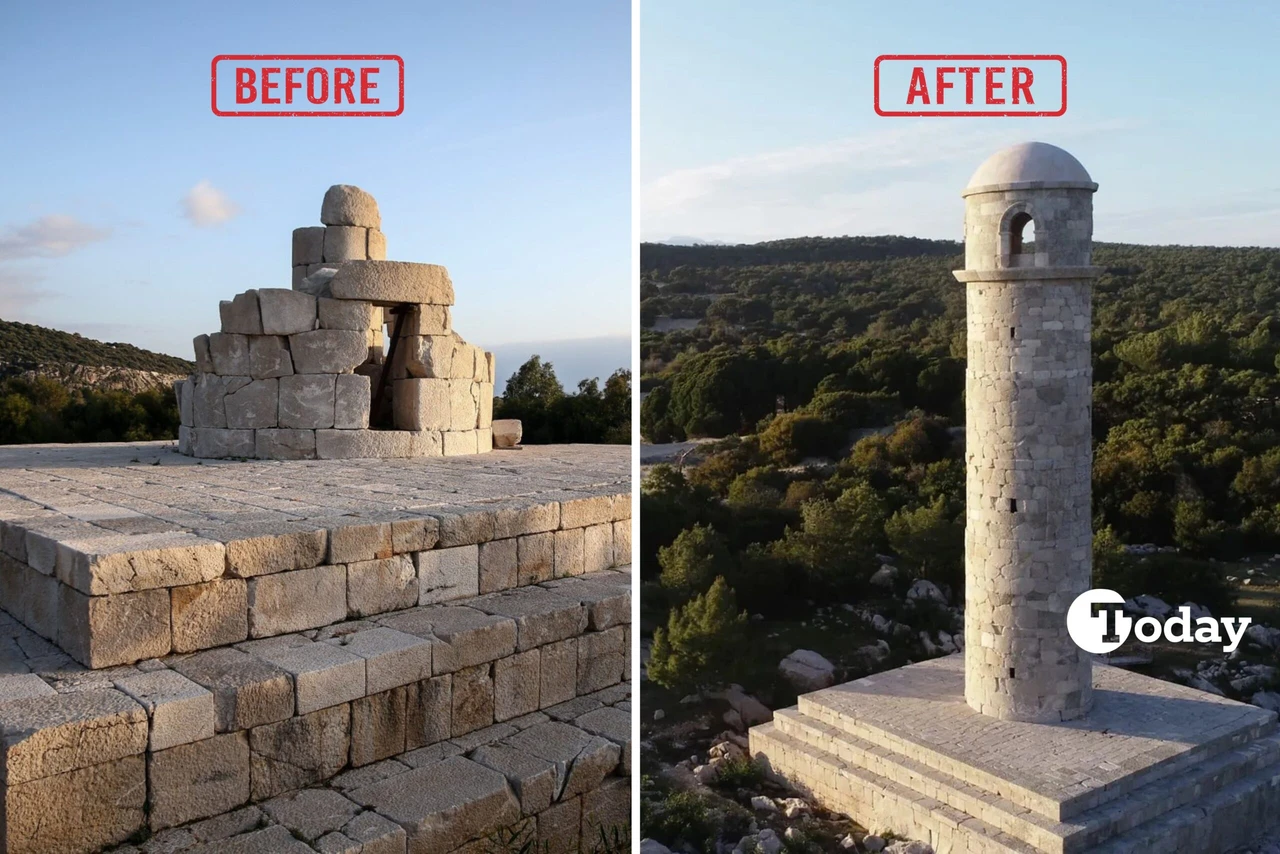200-year-old time capsule unearthed in archaeological dig
 A 200-year-old time capsule discovered during an archaeological dig in northern France. (Courtesy of BBC)
A 200-year-old time capsule discovered during an archaeological dig in northern France. (Courtesy of BBC)
Archaeology students in northern France discovered a 200-year-old time capsule during an archaeological dig at a Gallic village site near Dieppe.
The team, led by Guillaume Blondel, found a small glass bottle containing a message, which dates back to 1825. The note was left by a previous archaeologist who worked at the site nearly two centuries ago.
Time capsule reveals details of early excavations
Blondel, who heads the archaeological service for the town of Eu, described the discovery as an “absolutely magic moment.” He said, “We knew there had been excavations here in the past, but to find this message from 200 years ago … it was a total surprise.”
The emergency archaeological dig began due to cliff erosion threatening the site, which has already destroyed a significant portion of the oppidum, or fortified village.

Message from past provides insight into historical research
The message, written by P. J. Feret, a Dieppe native and a member of several intellectual societies, described his work at the site in January 1825. Feret wrote, “I continue my investigations in this vast area known as the Cite de Limes or Caesar’s Camp.”
Blondel pointed out the rarity of such finds: “Sometimes you see these time capsules left behind by carpenters when they build houses. But it’s very rare in archaeology. Most archaeologists prefer to think that there won’t be anyone coming after them because they’ve done all the work!”
Archaeological dig uncovers artifacts from Gallic period
The current team of students has been excavating the site for the past week, unearthing artifacts from the Gallic period, including pottery fragments dating back around 2,000 years.
Blondel emphasized that while they knew the site was significant as a Gallic village, many questions remain unanswered. “We knew it was a Gallic village,” he said. “What we don’t know is what went on inside the village. Was it a place of importance?”
The discovery of Féret’s message not only links present-day archaeologists with their 19th-century counterparts but also shows the ongoing value of exploration and preservation efforts. As Blondel expressed, “Finding this message is a reminder that there is always more to discover, and we are never truly finished with the past.”



